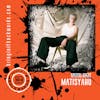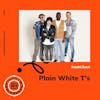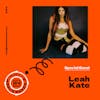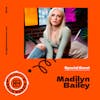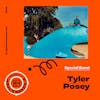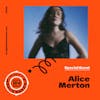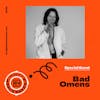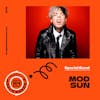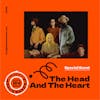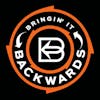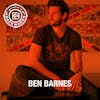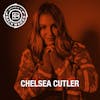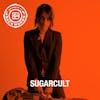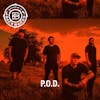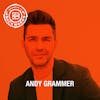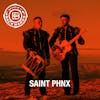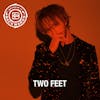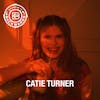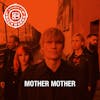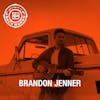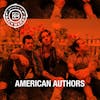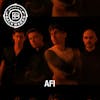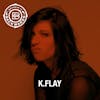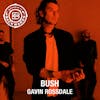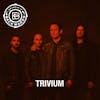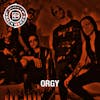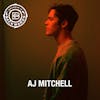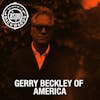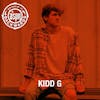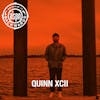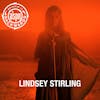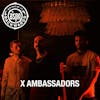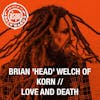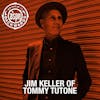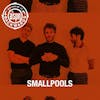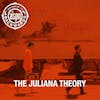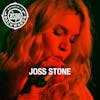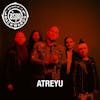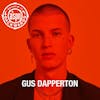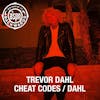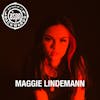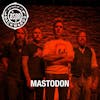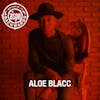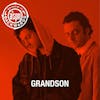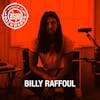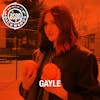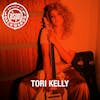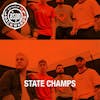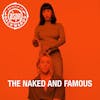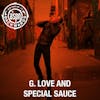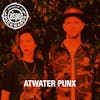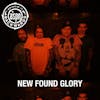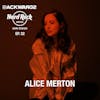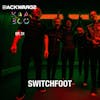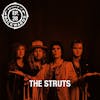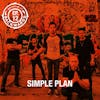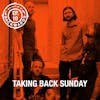Interview with Kevin Quinn
We had the pleasure of interviewing Kevin Quinn over Zoom video!
Capitol CMG’s breakout pop artist Kevin Quinn who made his explosive musical introduction last summer with launch single “Wildfire,” on the heels of his series regular role on...
We had the pleasure of interviewing Kevin Quinn over Zoom video!
Capitol CMG’s breakout pop artist Kevin Quinn who made his explosive musical introduction last summer with launch single “Wildfire,” on the heels of his series regular role on Disney’s “Bunk’d” and in the popular Netflix musical, “A Week Away” (FYI - he sang 11 of the 13 songs on the soundtrack). He just released his anticipated debut EP and new single, “It’s About Time,” with a “Breakfast Club”-inspired music video
The five-track debut EP features his 2021 hit “Wildfire,” consecutive singles, and the brand new EP title track, “It’s About Time.”
While his pop music career has just launched, he’s certainly not new to the industry. Last year, he starred as the heartthrob lead—a troubled teen redeemed, in Netflix’s faith-based musical “A Week Away,” opposite Bailee Madison. Previously, he also starred on “Shameless,” “Chicago P.D.” and two seasons as series lead “Xander” on Disney’s “Bunk’d.” Currently, Quinn is on a 40+ arena tour as a special guest on Winter Jam 2022
We want to hear from you! Please email Tera@BringinitBackwards.com.
www.BringinitBackwards.com
#podcast #interview #bringinbackpod #KevinQuinn #ItsAboutTime #Wildfire #CMG #ChristianMusic #AWeekAway #Bunkd #musicinterview #MusicPodcast #NewMusic #zoom
Listen & Subscribe to BiB
https://www.bringinitbackwards.com/follow/
Follow our podcast on Instagram and Twitter!
https://www.facebook.com/groups/bringinbackpod
We'd love to see you join our BiB Facebook Group.
0 (56s): Hello! It is Adam. Welcome back to bring in a backwards podcast where both legendary and rising artists tell their own personal stories of how they achieved stardom. On this episode, we had a chance to chat with Kevin Quinn over zoom video. My guess is that you'll recognize Kevin from his acting career. He was Zander on the Disney show bunked. He also starred in the Netflix musical a week away and prior to that did the Chicago PD and shameless and a bunch of other shows before landing the big role on bunked, but he's also a musician and we spend a lot of time talking about his music career, which actually started before his acting career really blew up. 4 (1m 38s): He learned piano at an early age six and guitar lessons always sang. He was in chorus and choir and different extracurricular activities like that. But he saw an ad on Facebook when he was home sick from school that had Nikki monogamous face on it. And it said something about auditioning for American idol. So he turned on photobooth on his computer and he ended up singing a song to the computer, submitted that, and he got a call back for American idol. He told his mom about it. She thought it was fake. They figure out that it was actually real. He goes at the long beach audition for the show, and eventually got eliminated pretty quickly into the process of American idol, which is funny because when he got home, he enjoyed being in front of the camera and kind of part of the reality show so much that he wanted to try his, his way in the acting world. 4 (2m 28s): He auditioned for an agency in Chicago, where he's from. He ended up landing an agent who got him some roles locally, which led to him eventually landing a movie for Disney. And while he was shooting the Disney film in Vancouver, he got the offer for bunked. And that's when his, obviously his acting career really escalated. But we also talk about how during his time on bunked, he hired someone to help him produce and write music because he was always obviously a fan of songwriting. You wanted to be a musician. He talked how, when the pandemic happened, that's when he started to writing what became this brand new EAP. We talk all about his new IP. It's called it's about time, which is also the lead single off the record. 4 (3m 11s): And we talk about the music video for it's about time as well, which is based on the breakfast club. And he's got a really cool story about that. You can watch our interview with Kevin on our Facebook page and YouTube channel app, bringing it backwards. We'd love it. If you subscribe to our channel like us on Facebook and follow us on Instagram, Twitter, and Tik TOK at bringing back pod. And if you're listening to this on Spotify or apple music, it would mean the absolute world to us. If you can hook us up with a five star review and follow us there as well, 5 (3m 39s): We'd appreciate your support. If you follow and subscribe to our podcasts, wherever you listen to podcasts, 4 (3m 45s): We're bringing it backwards with Kevin Quinn. This is all about you, your journey of music, obviously, if a big career in acting, but I want to focus on your music, but that's cool throughout this conversation. And we'll talk about the new record and obviously the Victoria you're on. 6 (4m 0s): Yeah, yeah, man. I'm on the road back at it again. It's crazy, man. I'm actually leaving. I'm in Nashville right now. And I've got a 14 and a half hour drive tonight to Wichita, Kansas 4 (4m 15s): During Nashville. I'm in Nashville as well. Yeah. 6 (4m 19s): Get outta here. 4 (4m 21s): Yeah. Yeah, I do. I'm actually just moved here from San Diego. So my family and I moved and we love it out here. We're in south of Nashville down by a Franklin area, but we love it here. 6 (4m 33s): Nice. Yeah. I've thought about making the move myself a few times officially, but I'm still in LA at this point, 4 (4m 39s): Right on. That's cool. Yeah, I saw, I was looking at the tour schedule and that you're in Wichita. I didn't know if you were like in route, like having to do this. 6 (4m 48s): I've had to do those podcasts before where I'm on the road and taking it from the back lounge of the bus going 60 miles an hour. 4 (4m 57s): Rad. Well, awesome. Thank you so much again for doing this. So you're in Nashville now, but originally, where were you born and raised? 6 (5m 4s): Chicago. 4 (5m 6s): Chicago. Okay. 6 (5m 7s): Chicago born and raised. And then I moved to Los Angeles when I was 17 to work for Disney channel. I had a gig on one of their shows and then I, I have been there ever since. I think it's been seven years now. And honestly, my acting career is what's still keeping me in LA. Otherwise I would've probably made the move to Nashville, like I was telling you by now, but I still am in Nashville all the time residents in is basically my home away from home. I hate to say 4 (5m 36s): That's awesome. Do you do a lot of writing in Nashville? 6 (5m 39s): Yeah. All of my writing is done in Nashville, actually. I wouldn't say all of it. I have a few writer, producers that I've worked with in Los Angeles. I think Paul Dunkin is one of them, Theron Feemster and nephew. So there's a, there's like a handful of them that I work with, but the majority of them are probably in Nashville. 4 (5m 56s): Right on. So you were born and raised in Chicago is like growing up in Chicago, 6 (6m 2s): Idealic, if you could believe that. I know people talk, people have different opinions of Chicago. I don't know if it's the same city that I grew up in post pandemic, but I think a lot of cities are just feeling, you know what I mean? Yeah. But really man, I mean, you know, Chicago was just the perfect version of a childhood that I could have ever imagined, you know, playing soccer in the alley and the trampoline in the backyard, just an all American kind of childhood. And people have asked me before they say, you know, what was it like growing up in the industry? 6 (6m 44s): Just cause I got started young was a young actor, but the truth is I, you know, I, I tell them, I never felt like I did. I never felt like I grew up in the industry. You know, a lot of my peers, especially working on Disney channel back then, might've told you that they did, but I would've never told you that. I went to the nature of high school, public high school for four years. And the north side of Chicago, I was taking summer school chemistry classes, just trying to get my credits in before I, I started career in Los Angeles. So, you know, I had a community in Chicago, friends and people that I, I no one loved and still keep in touch with, but I, I never felt like I grew up in the industry. So it's always an interesting dichotomy if people ask me and they assume that a young actor must've had a different kind of childhood, but I had a childhood that most people had. 4 (7m 33s): Yeah. I mean, at 17 I would think that that's not really growing up in industry. If you're, you know, three and you know, whatever, small commercials then obviously that would be different, different route. But the fact that you landed the show, when you said 17 years old, that's quite, or at least that's when you moved to LA, it's quite a different journey growing up in Chicago though. Like talk to me about how did you originally get into music? 6 (7m 57s): I auditioned for American idol in 2012, I believe on a whim. I was home sick from school one day and scrolling Facebook, like every 13 year old kid, the 2010s. And I saw this ad with Nicki Minaj, his face on it on Facebook saying, you know, submit yourself your audition self-tape and I was born and I was just like, Hey, why not? You know, I'm homesick. I, I mean, in retrospect, in retrospect probably wouldn't have submitted the tape with strep throat, but I was just the kid. I was like, Hey, yeah, I'll sing. So I recorded a video and photo booth of me singing and I sent it into this submission website. 6 (8m 40s): And then two weeks later I got a call from a producer in long beach, California saying that they wanted me to come out and audition for the judges. And I thought it was fake. I, you know, I was in the basement playing video games and I call my mom upstairs. I'm like mom, someone from American idols on the phone, she's like, hang up. 4 (8m 58s): She's like, yeah. Right. 6 (9m 3s): But no. And then I went out to Los Angeles and it was a real deal. And I auditioned for the judges. And ironically, I thought that was going to kickstart an early music career for me. But it was actually the contrary to be true, ironically, a kick-started acting career for me. And I don't know if that was just because it was a reality TV show and I was in front of the cameras, but I got pretty comfortable around the cameras. And so I had the idea as a young kid, just, you know, taking, taking, acting classes in high school. Well, what if I audition for like an agency in downtown Chicago, which is in my backyard and try to do stage plays or local productions, 0 (9m 44s): They had a big scratcher from the Virginia lottery could be a big hit for you. The game gives you the chance to win up to $1 million. Virginia lottery scratchers everyday wins. Visit a lottery retailer near you for rods and more information. Visit VA lottery.com. 9 (10m 4s): Now you can get McDonald's crispy chicken sandwich to make Donald's spicy crispy chicken sandwich or balayage fish. Any Tober, just six bucks. Sounds really good. Doesn't it pop up prices and participation may vary a single item at regular price and not be combined with any other offer. 0 (10m 28s): Facebook has invested $13 billion in teams and technology to enhance safety over the last five years. Over the last few months, they've taken down 1.7 billion fake accounts. Learn more about their ongoing work@aboutthatfb.com slash safety. 6 (10m 43s): So I did and I got representation and I started to do stage plays at Steppenwolf theater, which is Gary Sinise is theater. You know, John Malcovich plays there. Sometimes Chicago Shakespeare theater. I was doing Shakespeare when I was 16. So I was kind of dabbling in that in Chicago. And then eventually I got some roles on Chicago PD shameless, some of these local Chicago productions. And when I had saturated the Chicago market, I decided I was going to move to Los Angeles and just pursue acting full time, you know? So I kind of put music on hold and assumed well, if it's meant to be, it'll come back around right now and getting great opportunities and jobs in the acting industry. So I'll keep that going. 6 (11m 24s): I got out to Los Angeles booked my first role within two weeks. And I had an Airbnb booked for three months thinking that I wouldn't book anything. So when I had to go to shoot in Vancouver, after I did, I was using the money to basically pay for the Airbnb that I had booked. 4 (11m 41s): Was anyone staying in it where you like telling your friends and family members like, Hey, I got this Airbnb, do you want to create, 6 (11m 47s): Yeah, I have your friends from high school that flew in to spend some weekends in LA. So, you know, it was kind of like a fun time. It like a glorified slumber party, if you will. Yeah. And so then, so then after that, the Disney channel had been seen self, what do you call it? Dailies from that movie that I was doing for them in Vancouver. And they said, Hey, you know, we think you'd be good for this role. Do you want to come in and screen test for it? I said, yeah, sure. Why not? So I flew back to LA show was called summer camp, which turned out to be bunked on, which is actually still on the air, if you can believe that. 4 (12m 21s): Yeah, my son is actually, he was a big fan of Jesse. And then when it transferred into that and he like, he still loves the show. I didn't tell him I was talking to you today, but I'm going to rub it in his face when he gets home from school. 6 (12m 36s): Yeah. So then I shop bunks for two years and this character that I was playing was, was a singer. So I started taking guitar lessons again and which Disney paid for God bless them. And I just fell in love with music all over again. I was like, you know, if there's a way that I can turn this background to a music career and still do what I do, what I want to do here with the acting, then that'd be great. So eventually that did happen. And I did another musical movie for Netflix a couple of years later after I left the show and that led to a deal with Capitol records. And so now I'm here on tour and, and promoting this first EAP. 6 (13m 18s): So, 4 (13m 18s): So amazing. So amazing. I want to rewind a bit back here, if you don't mind. I'm just curious, like, so you see this ad on Facebook for, you know, American idol. You obviously had singing ability. I mean, prior to seeing that you must have known that you could sing and did you play an instrument prior to that? Or like, was it like, Hey, I could probably sing. Let's just turn this thing on and let it rip. Or were, are you doing videos prior to that or anything like that before? 6 (13m 45s): I knew I could sing and I actually put the time and effort to write a song in high school and get it produced by like a local Chicago producer. I put it on at the time. So I don't know, maybe it was always in me that I had this kind of hunger for putting music out there. So I knew I could sing. I dabbled in guitar, dabbled in piano, took choir, took music theory in high school. So yeah, I, it was always something that I knew I, I could do. I just never really had the opportunity to do it until then. And the thing about American idol, you know, I was so excited for it at the time and it was such a big deal and all my peers are like, dude, that's so awesome. 6 (14m 26s): You know, but in retrospect it was very much a stepping stone. You know, I, I'm very glad that I didn't have a career that was super affiliated with American idol or that I, I made it too far so that it kind of stuck with me with the branding of it. 4 (14m 45s): I I've, I've had this conversation with people before, and it's really interesting. I wanted you to continue that, but I hear you. 6 (14m 52s): Yeah. And so like, even when I moved to LA, I got a buddy named Jared a and Jared owns just Jared and, and which is a publication. And he was talking to me about my career and stuff. And I was like, you know, do we want, do we want to talk about the American idol thing? And he's like, Kevin, you should be glad that you got kicked off that show when you did. And I was like, you know what, from a publicist point of view, he's absolutely right. I I'm glad I did because now it's more like something that people know that I did, but it hasn't been a career defining thing for me, I've been able to do bigger and better. And I hope to still do that. You know, it's kind of the same dynamic with Disney that you get affiliated with the brand. 6 (15m 32s): But luckily I feel that I've been having a, somewhat of an easier time transitioning into adulthood. 4 (15m 39s): Sure, sure. Yeah. I've, I've definitely heard the story of, you know, American idol not wanting to be just known as, oh yeah. You're the guy from American idol or you are, and you kind of get into that, that world. And it's interesting. Cause I was just doing research on the season that you were on and I'm like, I don't even know who this person is, that one, you know what I mean? Like it's so horrible to say, but it's like so true. It's like, there's been so many. If you think of like all the people that have won American idol, how many of them really even have a career to this day? And it, yeah. It's, 6 (16m 10s): Hey, it's not a bad thing. And if you can get far on the show and still have a career afterwards, then that's a win in my foot. But you know, it's funny maybe like five years after that I befriended a man named Chris Lithco and Chris is a theater producer who had asked me to come in and do Peter pan for him, which I did at the Pasadena Playhouse one year. So I got to know him and his father is Nigel Lythgoe, who is the, I don't know if he's executive producer creator, something of American idol, but he's heavily 4 (16m 46s): Involved. 6 (16m 48s): Yeah. And, and I was just having a candid conversation with Chris one day at the theater. I was like, you remember, I was on your dad's show. Right. And he was like, I do remember that, you know, why you got kicked off? And I was like, why? And he said, because you were under 18, no one under 18 can be on a live show. So I was like, that's why reality TV. You can't work those labor hours in the union. So I don't know if they have exceptions for that, if they really believe in someone, you know, like Jordan Sparks or something who was 17. But I was like, yeah, I guess that makes sense. So I kinda got like the inside scoop as to what really went down and, and being able to work for the Legos afterwards and, you know, end on good terms with, I love that guys. 4 (17m 32s): That's so that's crazy. Okay. Well, okay. So you did, we talked about your acting career and then you did this musical that was on Netflix and then that kind of led you to where you are as far as being signed with Capitol and, and all of that. But like when were you, were you writing songs in between here? Like when did you start, you said you wrote a song in high school, but was that something that you revisited when you were, you know, acting a little bit or 6 (17m 57s): Yeah, I mean, yeah, I wrote some songs in high school, but I really started to take it seriously during my time on Disney channel. So I would, I would rehearse three days a week and then two days a week I would shoot on Thursday and Friday for the show. And every Monday, Wednesday, Friday, I worked with a producer, a writer producer to write and record after rehearsals and shooting days. So I kind of hired him as my in-house personal producer. And he was helping me develop my music and my songwriting skills. And I just kept, you know, writing songs with him that lasted maybe two years. And I had, by that point, a repertoire of quite the repertoire songs, I don't know if they were any good, but it definitely helped develop my songwriting skills. 6 (18m 45s): And I wouldn't trade that time because it was absolutely what I needed to be able to write the music that I'm writing today. So I kinda went through that, you know, development, developmental songwriting period that most artists go through, try to find my sound. And then the music started getting better and better. And eventually it got good enough that I, I was like, Hey, maybe I can start sending this stuff to labels. So I sent some demos to Capitol and they love the stuff. And they knew that I was already doing stuff in other facets of my career. And so they brought me on and, and signed my artists in publishing and writing songs for them. And, you know, the, the first group of songs was the EAP. 6 (19m 29s): And a lot of those were written during the pandemic. So stay at home order. So you know, all these themes of light and hope and inspiration, positivity, whatever it is that you, you hear on the EAP, all just felt really relevant in timing. And like, these were the group of songs that I, I was supposed to release. And I I'm glad I did because even seeing the response on winter jam, when I sing, it's about time to lead single and people are going crazy. I mean, it's been out for like two weeks and they're already singing it out in the crowd. So to hear that for the first time, and it's just, it's really rewarding and I'm just happy that they're responding to the EAP. So, well, I think, you know, this group of songs is, is definitely the most proud work that I've done to date. 4 (20m 14s): Wow. I'm sure that's gotta be such a different feeling. I mean, being on a TV show, you're not really getting the immediate response from people. There's not a crowd of people cheering you. I mean, I don't know, maybe you should in front of a crowd, but as you do like Peter pan or something, you'd get that kind of immediate reaction, but you wrote these songs you're going out and singing them and having these, these fans in this crowd, sing them back to you. That's gotta be a totally different emotion. I would think on stage 6 (20m 41s): It's totally different. You're absolutely right. There's something about instant gratification of hearing like a crowd's or, or, you know, after a play 1 (20m 51s): Critics everywhere at Creek, the last city is a hilarious adventure. That is pretty awesome. Channing Tatum and Sandra Bullock are comedic goals. Not 2 (20m 60s): As that, you wish you could get out of by whipping your shirt off. 1 (21m 2s): That's debatable. The last city in theaters Friday rated PG 13. 9 (21m 12s): Now you can get McDonald's crispy chicken sandwich to make Donald's spicy crispy chicken sandwich or balayage fish. Any Tober to six bucks. Sounds really good. Doesn't it pop up prices and participation may vary a single item at regular price and not be combined with any other offer. 0 (21m 36s): Facebook has invested $13 billion in teams and technology to enhance safety over the last five years. Over the last few months, they've taken down 1.7 billion fake accounts, learn more about their ongoing work@aboutthatfb.com slash safety. 6 (21m 51s): You know, the people in the audience starting to clap that, you know, you you've done good work and that they're supporting you, but you don't really know that with music until people hear it for the first time. And until you, you put it out there and by the time you actually put it out there and after writing it, recording it, you know, mastering it, mixing it. I mean, it could be months since you first wrote it, that people are finally hearing it. And at that point you get, you know, demo white is when you start to second, guess it is this good, you know, cause I was sitting on it for six months at this point, but then to, to hear the response that people have once it is finally out there and see that they enjoy it, then you know, you did good work. 6 (22m 32s): And luckily that's been the case for me. 4 (22m 34s): That's amazing. That is amazing. I'm real quick on the project that you kind of, or hiring this person to kind of help produce while you're also working on the Disney show. Was that kind of like a passion project or it was just something that you're like, you know, I really want to start writing songs. I've got this stuff I want to get out. Like how did that even begin? 6 (22m 53s): I think it, I think it started from passion, a passion for music and a passion for creativity and creative expression. But I think it was more so a logical rational next step that I knew I had to take in order to achieve some of the goals that I was hoping to achieve later on. And that's kind of the way I think I'm very much like I, I have emotions and feelings and an, I judge, you know, how to proceed with those emotions or, or next steps, you know, even when it comes to my career, we can get into the whole of 16 personalities like that inf J stuff. 4 (23m 31s): Sure. 6 (23m 32s): I'm pretty sure I'm like an inf J or something, which is like the rarest personality type. If you complete that, like Chino is and Taylor swift, I don't know why, but for some reason I have a very quirky personality that involves a lot thinking and then logical rational, next steps in, in getting things done. And that's kind of the way I've always worked. And I think what has helped my productivity and motivation and actually me getting to this point. So for me to kind of go through that writing period of, of just developing my songwriting, it felt like I knew that I needed to go through that passion aside in order to achieve my goals. If that makes sense. 4 (24m 11s): No, for sure. For sure. And I mean, obviously Pachino Taylor swift, some of the most creative people there are around. Right. I mean, and hardworking people around as well. 6 (24m 23s): Yes. Yeah, man. I'm I'm into the whole like 16 personalities. Enneagrams astrological signs Zodiac. I dunno. 4 (24m 31s): No, what's funny is like, I'd never heard of like numerology. Do you know anything about numerology where your name, you break down the letters of your name into certain numbers and it like equates it to this thing. Yeah. I was interviewing somebody about it and they were telling me, and I'm like, this is nah. And I looked it up and there was like a website you can put your full name into and it'll break it down. And it starts like giving you feedback on what your number means and it's reading this stuff. And I swear it was like AI, like going through all my Facebook page, pulling this information. Cause it was like spouting all this stuff to me. I'm like, wait, what, how does it know all of this? Like it was, it was bizarre. It's called the numerology. 6 (25m 11s): I'll tell you, there's like a pseudo science for everything. 4 (25m 14s): Right. 6 (25m 16s): People look for meaning and everything. Whether or not there actually is. Meaning there actually I will say what, when it comes to faith and my faith that is kind of like where I do put meaning, you know, I still have the Zodiac stuff, but that's a different thing than like actual solid, grounded, you know, real faith for me, which is also something I'm kind of incorporating into the EAP, like such this crazy faith journey that is almost to fairytale S to even, you know, really comprehend. But yeah, that's been another thing that I've been putting into the EAP and the music is, is just in my relationship with God. And, and that's the other thing of considering how inspirational and positive this music has been. 6 (26m 2s): It's been cool to kind of put that inspiration, instill that faith and hope in people who need it. 4 (26m 9s): And that goes along with the tour that you're on to, right. Winter jam, it's a blot, it's all, it's a Christian tour. Isn't it all Krisha. 6 (26m 16s): It is. Yeah. So, yeah. And it's cool too, because it's such a hodgepodge of, of artists, you know, so for instance, we've got skillet, which is, they kind of remind me of like green day and I was 4 (26m 31s): In more of a rock band. Right? Yeah. 6 (26m 33s): Totally. And I mean, it's cool. Cause they're, they're like, I mean, those guys are like John Corey, Jen and Seth, like they they've been doing a, and I'm pretty sure a lot of their albums like double platinum at this. They're like the world's most low key, but successful rock. 4 (26m 51s): Yeah. Grammy nominations and stuff. 6 (26m 55s): They're just the nicest people. And they've been so kind on tour. So I'm grateful for that. But you know, they, they do kind of remind me like the all post rock two thousands green day. So you have, despite that it's still very much faith music. It's very much, you know, instilling faith and hope in people. Then you have someone totally different. Like this guy torn Wells who is a pop artist basically, but same thing, like instilling hope, faith in his music. And he has like choreography when he gets up on stage he's he's dancing and he's got like a whole MJ weekend vibe going on, crazy talented. 6 (27m 35s): And then I'm also tuning in with a guy named KB who is a Christian rapper. And it's just the same thing. It's like, there can be a whole bunch of variety and, and genres that kind of umbrella under the, the faith sort of approach. So I feel like I'm in good company and doing the same thing with my music that, that they're doing. 4 (27m 59s): Yeah. Yeah. That's cool. And it's cool how they kind of structure that, you know, giving all those different genres on one bill for everybody to kind of go. 6 (28m 9s): Yeah, 4 (28m 9s): Yeah, 6 (28m 11s): Yeah. 4 (28m 11s): Right, right. On your EAP, you said you wrote a lot of it during the pandemic. Do you feel like that had any effect on the, the record or the emotion of the record or 6 (28m 23s): I, I do feel like a lot. I do feel like we needed to have some more hopeful stuff. I probably would have gone deeper with some of the more vulnerable melancholy vibes, which I did go into deep with one of those songs over and over again, which is where the song on the EAP. And I was kind of going through an existential crisis during that whole time, you know, cause you were reading about it so much and all these people that were passing away and I had dealt with grief before and, and you know, recently lost people. And so I just felt like it was so relevant and the world was hurting. 6 (29m 2s): So had I kind of led with those emotions in the writing room, I probably would have had more songs like over and over again. Cause that was one song that I, I actually did lead with that kind of melancholy vibe and put it on the EAP. But I, I purposely stayed away from that just because of the timing. And I was like, I'd so much rather have songs like wildfire or it's about time that are more anthemic and just feel good, joyful songs that, you know, you could hear on the radio and they're just party songs. And part of what I think is so cool about it, it's about time to lead single is it takes an otherwise heavy subject and turns it around into something super positive. 6 (29m 46s): Because if you look at the lyrics, really it's saying like it's about time and how we spend it because you only got so much of it. And then we all keel over by the end of the day, Turn it around into something kind of fun was just totally unexpected because in the writing room it was, it could have easily taken a more melancholy. You could even say sad vibe, but I also got to give it up to Walker Hayes and, and Jordan Sapp for kind of steering the ship on that and saying, I think we can still talk about those things, but make it into a fun pop song. And that's what we ended up with. So it couldn't have gone any better. I'm very pleased. 4 (30m 26s): Yeah. I think people need the uplifting stuff, especially after all of what humanity has been through over the past couple of years, instead of like continuing down the like we're really sad rabbit hole. It's like, yeah, here's some songs that kind of can uplift everybody 6 (30m 41s): Is exactly man. Absolutely. We, we just needed it. You know, I mean there was always something going on. Humanity can tend to 4 (30m 52s): Be 6 (30m 53s): Travesty at times, but at the end of the day, you know, I think through all the noise that we should all just be happy to be here and life is such a gift and it's so fragile. So to be able to talk about that on the song and the EAP and we, we need to have the more somber and humbling realization that really the fact that we're here as a miracle and, and we need to make the most of every day almost not to be too Carpay DM cliche, but when you get into the swing of a routine or, or caught up in daily life and seemingly petty things, which we blow up to be way bigger deals than they actually are. 6 (31m 35s): And we tend to forget, you know, the bigger picture of life and the things that really matter. And for me kind of stepping back and coming to terms with my own mortality and having those realizations, like, why am I worrying about something so petty? Or why am I putting all my energy into something that at the end of the day is completely irrelevant. 0 (31m 57s): They had a big scratcher from the Virginia lottery could be a big hit for you. The game gives you the chance to win up to $1 million. Virginia lottery scratchers everyday wins visit a lottery retailer near you for rods and more information. Visit VA lottery.com. Facebook leads the industry in stopping bad actors online. That's because they've invested $13 billion in teams and technology to enhance safety over the last five years, it's working over the last few months, they've taken down 1.7 billion fake accounts to stop bad actors from doing harm, but working to reduce harmful and elicit content on their platforms is never done. Learn more about how they're helping people connect and share safely at about.fb.com/safety. 0 (32m 41s): Facebook has invested $13 billion in teams and technology to enhance safety over the last five years. Over the last few months, they've taken down 1.7 billion fake accounts. Learn more about their ongoing work@aboutthatfb.com slash safety. 6 (32m 56s): I think that grounded my faith a lot too, and brought me back to what was important in life. I think we all need that. 4 (33m 2s): Yeah. I completely agree on real quick on releasing music for the first time, putting a, putting a song out right. That you wrote and you're releasing, like, did you feel like you were going to get any, you know, lashback back like, you know, people going, oh, you know, you had, you're an actor now you're gonna put songs out. Like, did you ever, did you have that, you know, conversation in your head at all? 6 (33m 24s): I thought about it, but w the conclusion I came to was, no, I wasn't expecting to have, and I could have easily, you know, I mean, it's a totally fair question, but I think for me, it's just always been part of my identity that I was as much a musician and singer an artist as I was an actor. It's really just, the acting worked out first by chance. So, and people ask me, they're like, well, do you consider yourself more an actor or a singer? Do you like singing or acting better? I'm not crazy about those questions because I mean, people can have more than one, one career or hobby and still kind of it feed into what they are doing. 6 (34m 8s): And I never felt like I needed to choose one or the other. And at the same time, I didn't want to sacrifice one for the other. I mean, there's no reason why I can't, you know, keep working in films and actively auditioning and taking rules at the same time that I'm writing music on the days that I'm not doing that. So it's really just a balancing act for me and just another branch and facet of my career. It's like, it's like the Justin Timberlake effect, you know, I mean, the guy does Palmer for apple TV and does his film, and then goes on, on tour and does his man of the woods Stewart. So, you know, it's been done before or J lo so for me, it's just another, another facet of my career that I'm finally developing. 4 (34m 52s): I love that answer. Cause I was going to say, you could always just be like, well, you know, I went, I was an audition for American idol before I even had any like acting thing going on. And, you know, obviously that was kind of the inclination like, oh, I want to do this. And that was, you know, songwriting music based. And then that kind of just fell into when you got back to Chicago agency and doing more acting stuff. So it was like you started in music, 6 (35m 19s): But 4 (35m 19s): A lot of 6 (35m 20s): Guys 4 (35m 20s): Probably realize that 6 (35m 22s): They don't really it's just when my acting career or kind of blew up a bit. And then I became known as an actor just because I was currently relevant at the time doing the TV show I was on that's tends to be how it is, you know, no one hears the view until you do that role that you finally gain the public's awareness. Right. So by that time, they're like, oh, well we assume this guy's an actor because this is the first time we're hearing from him. But really, I mean, you know, I was doing it well before then. So it's, it's the same thing. 4 (35m 55s): Yeah. And it's like, when you said somebody, they asked you if you're a childhood actor, you know, growing up in the industry, you're like, well, I didn't, you know, 6 (36m 3s): I just have all these, like, it's a lot of assumptions, man. Exactly. It's a lot of assumptions. And I think part of it is just because, you know, the entertainment industry as a whole is such a public sort of, it's just a public thing, you know, like you're kind of doing it. Your audience is the global public to an extent. So it's really who heard of you from which press release who happen to hear that one song you did. So whatever way they heard of you first, that's going to be how they first know you when really it's just a career that has Hills and valleys and, and people are going to hear about you at different times or hear your music at different times. 6 (36m 43s): But it's just that when your audience is the public, everyone kind of knows you from a different thing or a different thing that you do. Does that make sense? 4 (36m 52s): Oh, it totally does. You could for Justin Timberlake, if you didn't know that he was an in-sync, maybe you saw him in the social networkers. I mean, you're like, oh, this guy's an actor. You know, he has this huge Disney pre you know, career. I mean, yeah. It just matters where you, where you find them. But yeah. 6 (37m 8s): And ask you ask an 11 year old kid, if they know it instincts today and it'll say Exactly. 4 (37m 17s): Yeah, that's funny. Well, I love that UPP. I love what you're doing. It's amazing. Best of luck on the tour. That's so awesome that you guys do. I mean, you're playing here in Nashville pretty soon. You're doing the Bridgestone arena, which is incredible. 6 (37m 31s): Yeah. Yeah. I'm excited for that one. So we're also doing like a, like some kind of pre show. I think we've got 150 fans coming in for like a private show somewhere in Nashville during, during that show day. So I think lights down, we'll start at 7:00 PM for that winter jam show at Bridgestone. But I think, I think it's like five or five 30 or something that I'm, I'm doing a little pre-show for them and they seem to still, it's going to be great. And I, I, yeah, it's going to be great. 4 (38m 0s): I just want to touch real quick on, on the single it's about time. I, the video I watched it before we got on the call. I love that video, man. So good with the breakfast club theme to it. 6 (38m 11s): Thanks man. Thank you. 4 (38m 13s): You enjoy the videos. So you're used to being in front of a camera. 6 (38m 17s): Yeah. Yeah. I, I kinda, I kinda like to put a little, you know, take what I know from acting and put it into these music videos. And that's what it was kind of cool to develop a little storyline for this particular video. And the breakfast club is always been one of my favorite movies, mainly because it just, it demonstrates growing pains and, and the experience of actually coming of age a lot better than I think other films have done afterwards. It's just, it's like for me, the it's the epitome and, and the staple film of what it means to come of age. And that's why I love it. And it was also filmed in Chicago fun story. 6 (38m 59s): The breakfast club is actually a term that was used at my high school neutral high school that started getting used, I think, at the late seventies. So if people at the school morning detention, and then they would send them to the morning breakfast club and John Hughes, who is also from Chicago and graduated from, I think, Glenbrook north, his best friend, his best friend's son went to nutria high school back in, back in the day at that time. And he was, I guess the sun was like talking to John and he was just something about the breakfast club and breakfast club detention. So that's how John Hughes got wind of it and then wrote a concept around it wanting detention. 6 (39m 40s): And I, that was at least the folklore in the story behind it. But I was able to get that fact reassured to me when, when I did one of my movies in 2015, I worked with a producer named Michelle Manning who has done Forrest Gump, a couple other films, and ironically was a co-producer on the breakfast club. So I asked her, I said, Michelle, is it true? What they say that the breakfast club is based off of nutria and that whole story, John and his friend's son, she said, it's absolutely true. 4 (40m 10s): Yeah. That is so crazy. That's and that's the high school you attended? 6 (40m 14s): Yeah, it gives me a little more affinity to it. So it reminds me of my own high school experience. I've had breakfast before. 4 (40m 25s): Well, Kevin, I really appreciate your time. This has been so amazing. Thank you so much for doing this. I have one more quick question for you. I want to know if you have any advice for aspiring artists. 6 (40m 37s): My advice would be to always lead with the fulfillment and the creativity, like always, always lead with what you love and your passion, because I think it's easy, especially as the career starts to take off, to get lost up, but just to get caught up and lost in the whole logistics of it and the noise and, and people talking and stuff like that and, and opinions, which is something I've also had to deal with as my career starts to gain a bit more traction and it can be a bit discouraging at times, but if anything, I, I use all my woes and all the good stuff too. 6 (41m 17s): And I put them into my music or I put them into my roles and I come back to why I started doing it in the first place, which is to act, to sing, to write music and, and do what I love. So never forget why you're doing what you love to do. And there's a lot of people who would love to be doing it too. So you're lucky if you get to be able to
Featured Episodes
Here are some great episodes to start with. Or, check out episodes by genre.
























